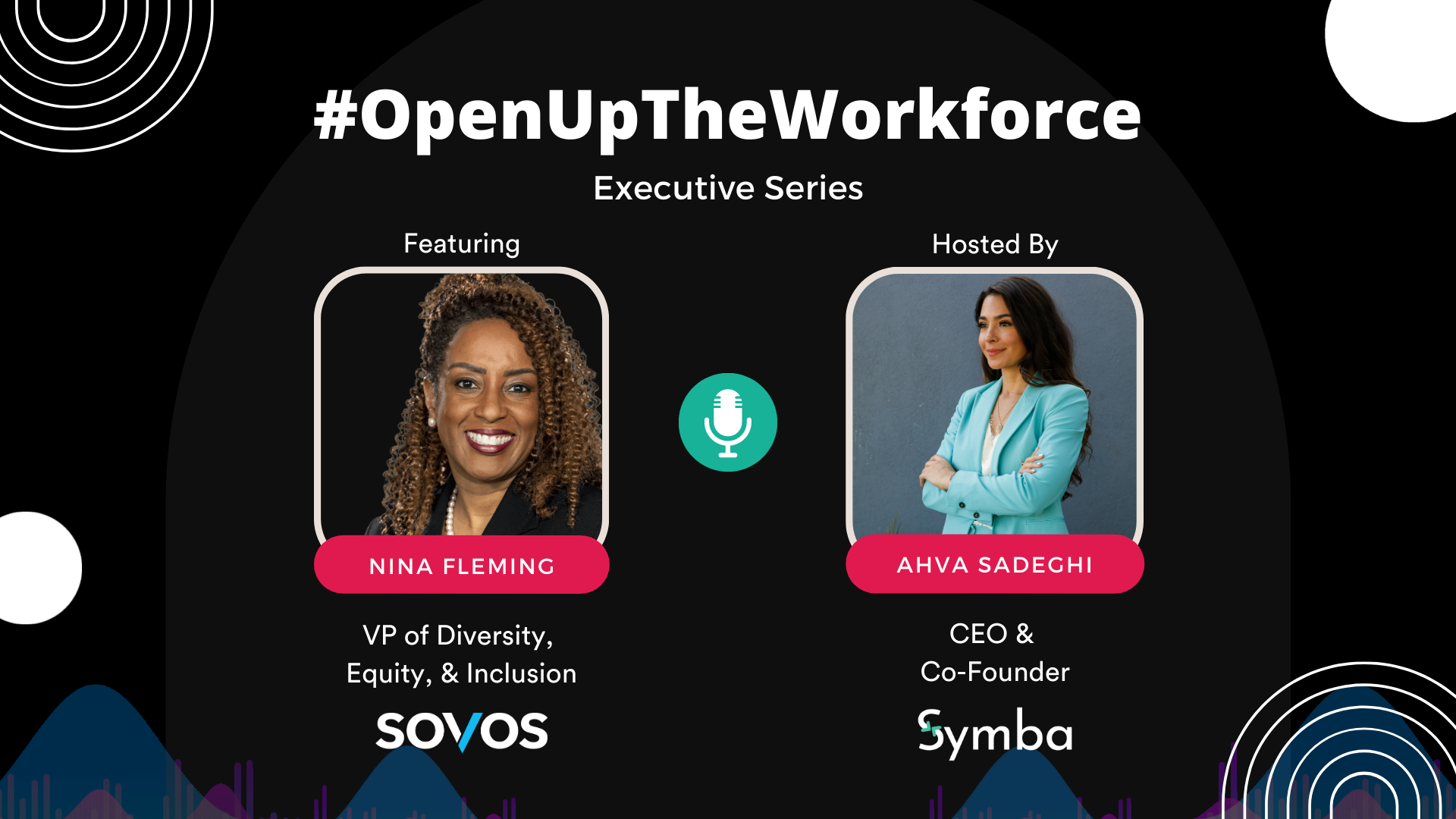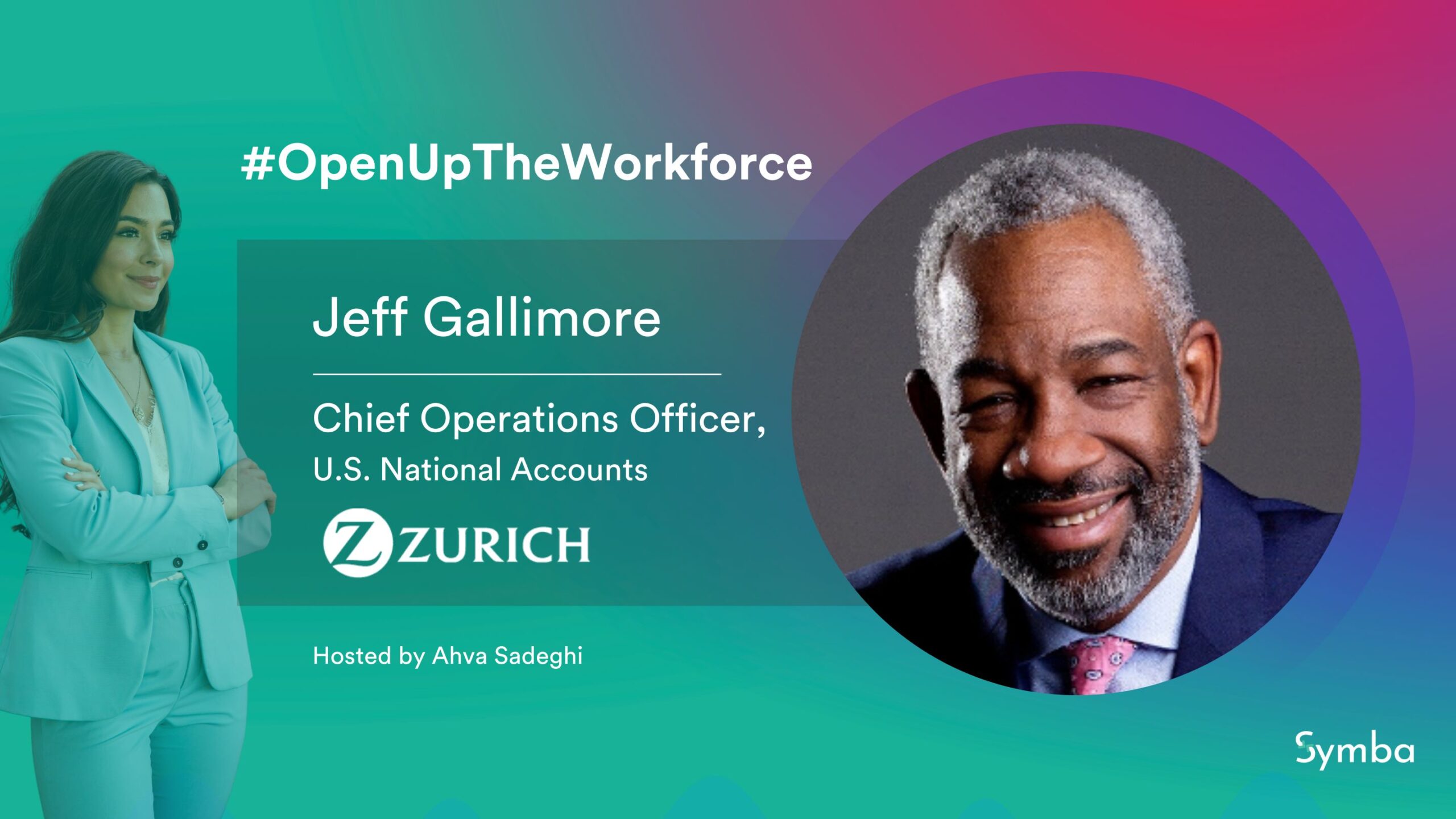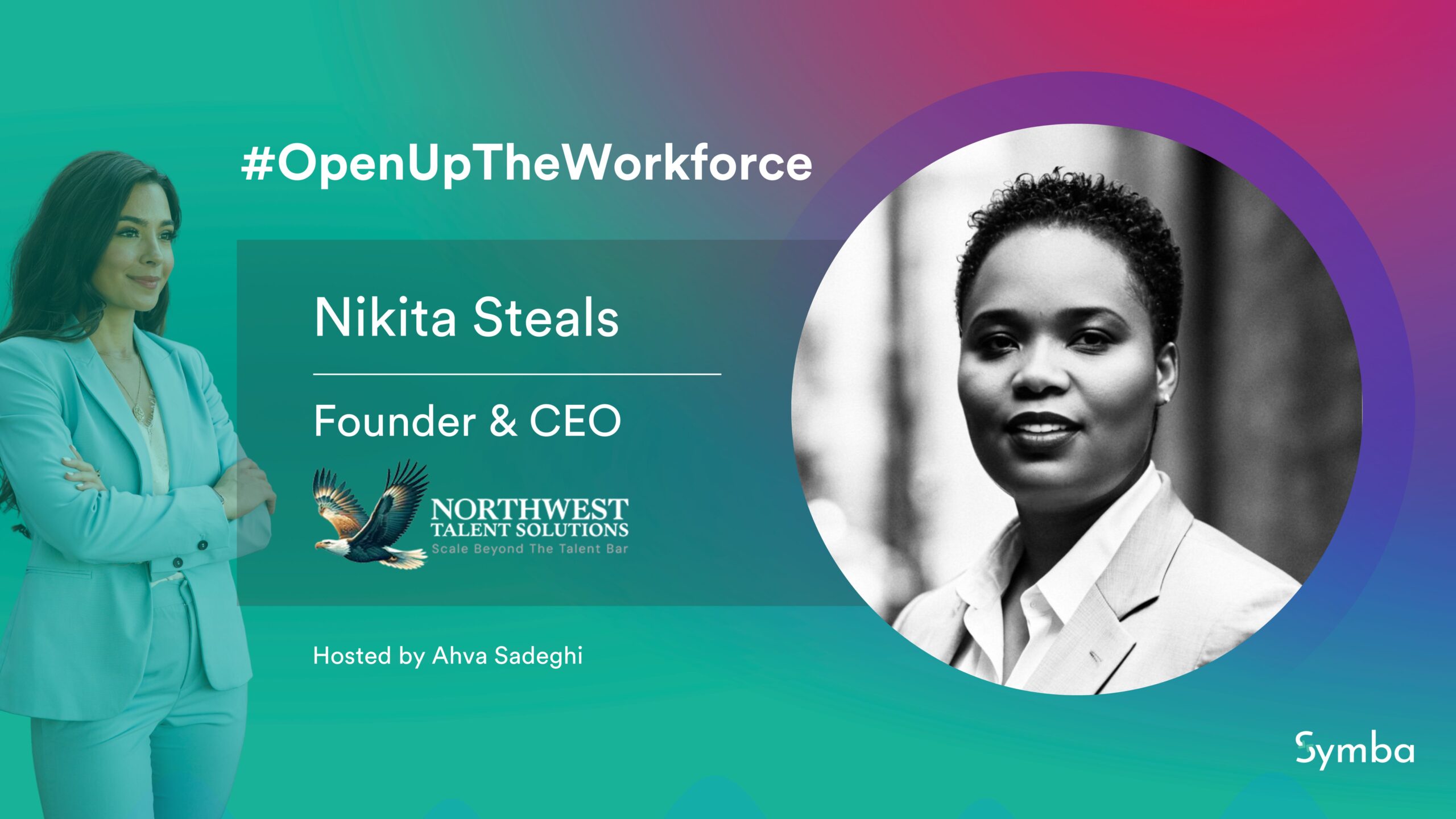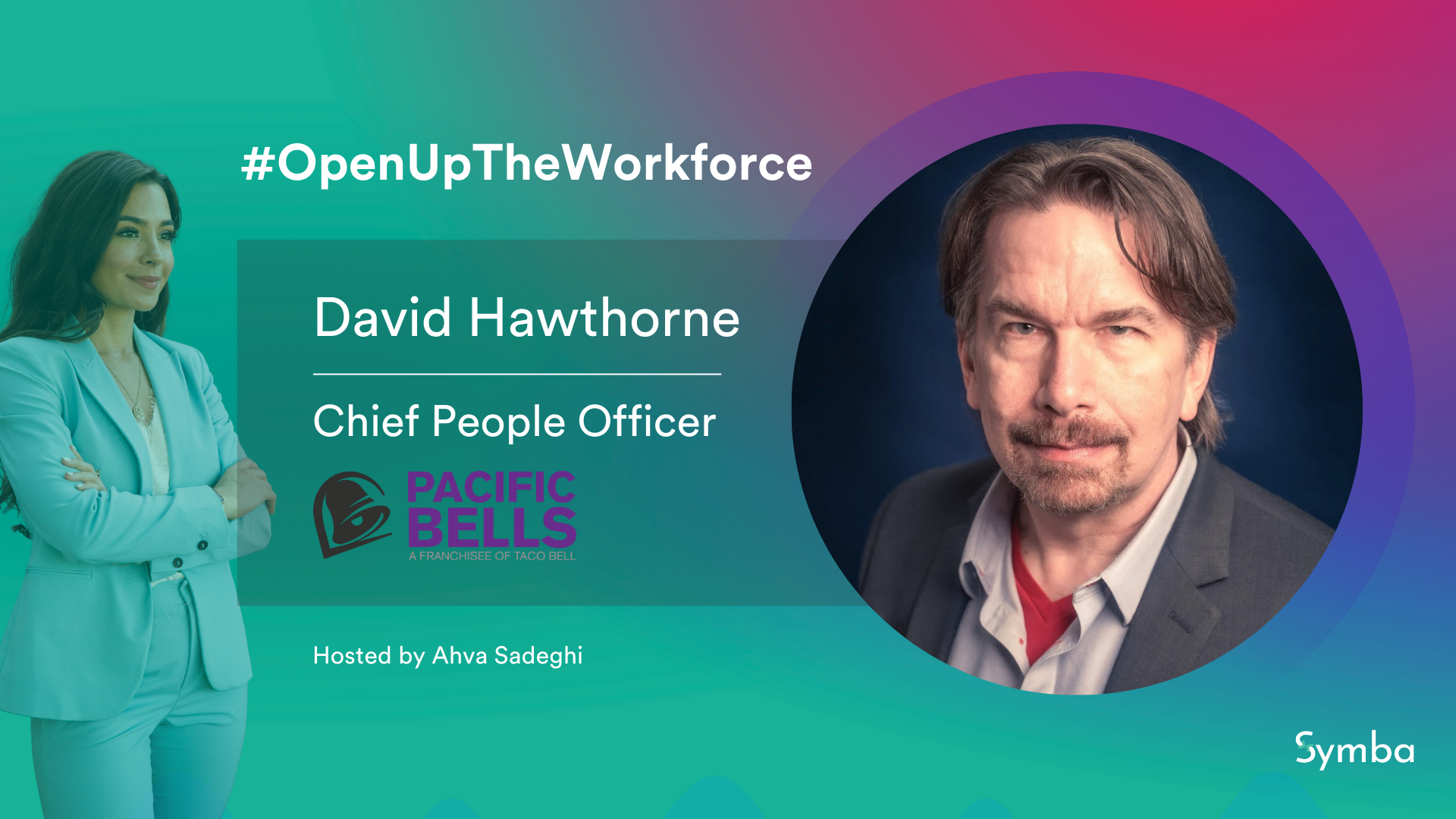Presented by Symba, #OpenUpTheWorkforce interviews feature executives advancing inclusion, diversity, and equity for the future of work. In these short audio-only episodes, we talk with the top about what it takes to develop and implement inclusive processes.
In this episode of #OpenUpTheWorkforce, Nina Fleming, Vice President of Diversity, Equity, and Inclusion at Sovos speaks about evaluating biases, building cultural awareness, and investing in talent development and continuous learning opportunities. Listen here.
Nina opens with a lesson from her childhood, “My parents consistently taught me ‘to whom much is given much is required.’ And if I was fortunate enough to be in a room, I needed to represent the people who weren't in the room yet.” With the values of diversity, equity and inclusion ingrained since her youth, Nina carried this perspective into her professional contributions to sales, advertising, and marketing fields, and is now dedicated to DE&I work.
Step 1: Provide psychological safety & emotional intelligence training
“Be Inclusive” is the newest core value at Sovos. To live that out, their team is working to cultivate psychological safety in the workplace so that the entire organization can show up as their authentic selves. They teach their employees to understand bias and privilege so that they can mitigate how it shows up and know how to overcome decisions that have previously been made with bias in mind. This appears in their Human Resources department through expanded training in holistic hiring and the shift to a “culture add” approach rather than “culture fit.” Sovos also uses a private email address strictly for diversity and inclusion questions or concerns, establishing a safe space for employees to bring to light important and, at times, difficult conversations.
Celebrate regional and global occasions with a cultural calendar
To develop cultural appreciation, Sovos leverages a cultural calendar to track and acknowledge important times of the year like Neurodiversity Celebration Week and International Women’s Day and International Men’s Day. Their calendar is flexible and continuously evolving, and employees are invited to suggest new holidays they’d like to be acknowledged.
Offer continuous learning and development opportunities
Sovos recognizes that as people grow and learn, their passions and interests may too. They encourage employees to engage in short-term projects with other departments, what they call “Cloud Rotations,” in order to increase exposure and cross-collaboration. This doubles as a strategic effort to bring different types of people together. They also provide employees with a learning platform that is accessible 24/7 so that they can explore any topic that interests them and are not confined to skill development purely in their current career path. Nina expands, “We wrongly assume that compensation is the only way that teams feel rewarded and that's not true learning. And development is one aspect where your reward will always pay off because the more people know, the better they can add to innovation and they can add to the future of your company.” Sovos has a relatively small Learning & Development team that is responsible for running some robust in-house programs. As a solution, they partner with outside organizations to provide professionalism and self-advocacy training for folks, like early career women, even before they join for in-house programs.
Leverage data to gauge your traction in advancing DE&I
- Hire a third-party consultant who can be truly objective about what is being done as opposed to the intention of the work.
- Measure diversity at every level and within every department. Nina shares that Sovos hires diverse cohorts to build diversity at every level. Be sure to track the progress and retention of your talent.
Nina lists a number of questions leaders should be asking themselves when evaluating DE&I metrics:
Where do you recruit, you know, who's leaving your organization? Does it reflect the same percentages that you're hiring or is one group more likely to leave than another? That's gonna give you information on inclusion. How inclusive is your culture? And how are developmental opportunities provided? Is that equitable? What are your employees saying on your engagement surveys? How included do they feel? And can you actually search this information by demographic? What about your performance review process? Have you reviewed that to make sure that it's equitable? Does your marketing reflect diversity and have the people who interacted with your customers been trained about bias and inclusion? What celebrations does your company observe? Do these adequately reflect the celebrations that your employees are actually observing? And [do] your mission and your core values reflect appreciation for diversity, inclusion, and equity? The overall goal is to understand where you are and wherever you are is not something to be embarrassed about because everybody starts some place. Because the goal is to improve.
What do leaders need to do to #OpenUpTheWorkforce?
Nina doubles down on the need to evaluate recruiting processes for bias, examining where and how your company recruits talent. She suggests that 1 or 2 hiring funnels are not enough to attract diverse talent. Nina adds that you should assess your screening tools so you know who is getting through, and recommends partnering with companies who will help you think of engaging talent in new ways.
As vice president of diversity, equity and inclusion, Nina Fleming leads the development and execution of Sovos’ strategy for a more diverse and equitable workplace. Her business philosophy is rooted in the belief that inclusion is not a nice to have, but rather a business imperative that leads to a healthy culture, strong performance and an improved bottom line.
Throughout her career, Nina has helped companies understand that diversity & inclusion make up the strength of an organization. She believes when employees are free to bring their whole selves to work, the business benefits through greater productivity, morale and innovation. In her former companies - General Motors and Honda, her primary roles centered around sales, marketing, and advertising. In each, she always practiced DEI because when DEI is working correctly, it’s not a separate function from the business, it should an intricate part of all strategies. DEI must be intentional and authentic to be successful. Nina currently serves as the Chairperson of the Georgia Diversity Council where she continues to be inspired by some of the most impactful DEI leaders in the country.
Nina is a proud HBCU alumni from Prairie View A&M University. The words she lives by are “to whom much is given, much is required.”
.
.
.
You can view other episodes of #OpenUpTheWorkforce here. Are you an executive leader increasing access to jobs and wealth creation? Request to be featured and show us how you #OpenUpTheWorkforce.





